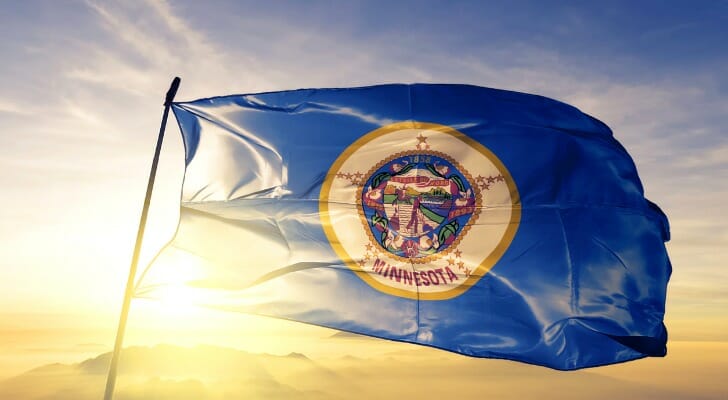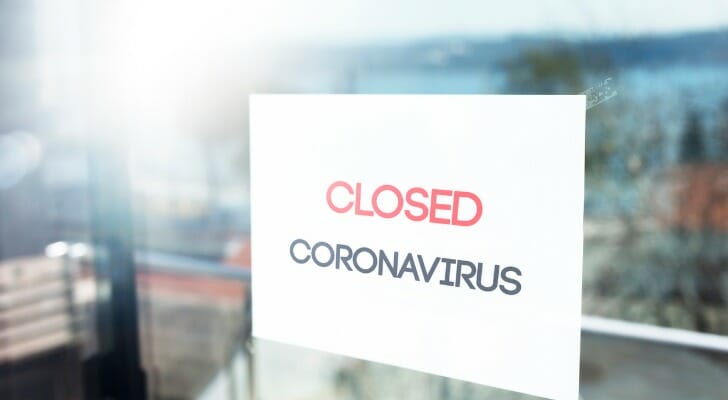Minnesota Coronavirus Relief Programs
As the coronavirus pandemic continues to spread throughout the U.S., multiple states, such as Minnesota, have created their own programs in response. Minnesota offers its individuals and small businesses several options to...Friday, April 24th 2020, 12:06 pm
By Rickie Houston CEPF®

As the coronavirus pandemic continues to spread throughout the U.S., multiple states, such as Minnesota, have created their own programs in response. Minnesota offers its individuals and small businesses several options to prevent further coronavirus-related financial loss, but Minnesotans can also utilize coronavirus crisis government help. The Coronavirus Aid, Relief, and Economic Security (CARES) Act ensures that all states receive federal relief in areas such as unemployment, small business assistance, taxes and more. Below, we look further into the available relief programs.
Many Americans are also consulting their financial advisors to protect their finances during challenging times. Find a financial advisor today.
Minnesota Coronavirus Relief for Individuals Minnesota Disaster Recovery Fund (MDRF)Formed by the Minnesota Council on Foundations and the Saint Paul and Minnesota Foundation, the MDRF raises money to offer financial support to communities in need. So far, the program has raised $11 million, which it in turn offers to grant-making organizations leading disaster recovery efforts throughout the state.
These organizations include Minnesota Initiative Foundations, local community foundations, tribal foundations, coalitions, community development financial institutions (CDFIs), networks, associations or other grant-making intermediaries. See more about the program here.
Unemployment BenefitsMinnesota normally mandates a one-week waiting period, but Governor Tim Walz has removed this to help those applying for unemployment benefits during the pandemic. Claimants also receive an additional 13 weeks of benefits (plus a federal boost of $600 per week) from the federal government, so Minnesotans can now utilize 39 weeks of unemployment compensation (UC).
Housing ReliefGovernor Walz issued an executive order that suspends evictions and writs of recovery for the duration of the COVID-19 peacetime emergency. The order went into effect on March 24, 2020, and it applies to those in their homes as of March 1, 2020.
Find other housing resources here.
Food ResourcesMinnesota families and individuals can also utilize several low-cost food resources. The Supplemental Nutrition Assistance Program (SNAP) provides monthly benefits, but these depend on household size and monthly income. And if you can’t leave your home, you can authorize a representative to shop for you. Another option is the Minnesota Food HelpLine. The organization says it offers food solutions specific to each caller’s needs. Learn more about Minnesota Food Helpline here.
Minnesota Coronavirus Relief for Small Businesses
If you’d rather not lay off your employees during the coronavirus economic crisis, you should consider the Unemployment Insurance Shared Work Program. Offered by the Minnesota Unemployment Insurance (UI) Program, the program splits available work hours among employees, allowing them to earn some unemployment benefits while they work reduced hours.
Businesses that qualify include publicly-held companies, privately-held companies, non-profit organizations and government entities. See how to apply here.
Minnesota Small Business Emergency Loan ProgramThough currently out of funding, the Minnesota Small Business Emergency Loan Program offered coronavirus-impacted small businesses loans ranging from $2,500 to $35,000, depending on the business’s economic injury, according to the Minnesota Department of Employment and Economic Development. To qualify, businesses were required to:
- Be current on financial obligations as of March 1, 2020
- Be an existing small business (whatever the form of their organization)
- Have been operating in Minnesota long enough to demonstrate financial viability
- Be willing to provide collateral or personal guarantee for at least 20% of loan
- Be unable to qualify for a standard loan through a bank, credit union, or nonprofit lending organization
- Pay-off the emergency loan if financing is received subsequent to loan approval.
The program may receive additional funding. Learn more here.
Minnesota Small Business Loan Guarantee ProgramMinnesota established this program as a response to the COVID-19 pandemic. The program allowed state lenders to provide funding to small businesses, and it promised a 80% loan guarantee for loans up to $250,000. But only employers with fewer than 250 employees were eligible. This program is also temporarily suspended, but you can stay updated here.
Minnesota Peacetime Emergency Child Care GrantsThough applications are suspended until May, some child care providers may qualify for monthly grants under the Minnesota Peacetime Emergency Child Care Grants. The program offers monthly grants starting at $4,500, but licensed providers with at least 15 children qualify for an additional amount of up to $15,500, according to Child Care Aware of Minnesota.
But only certain child care programs qualify. Eligible programs include family and group family programs licensed under Minnesota Administrative Rules, chapter 9502, child care centers licensed under Minnesota Administrative Rules, chapter 9503; and tribally licensed child care programs. See more information about eligibility requirements and grant details here.
Federal Coronavirus Relief for IndividualsThe CARES Act coronavirus stimulus package includes several major provisions that benefit individuals and families affected by COVID-19. Among these are the coronavirus stimulus checks. These direct cash payments go out to all Americans within certain adjusted gross income (AGI) limits. For instance, individuals with an AGI of $75,000 or less receive a flat $1,500, but they won’t earn anything if they make above $99,000. Married couples can earn a maximum of $2,400 (plus $500 per dependent) if they make $150,000 or less, and the maximum income cut-off is $198,000. However, heads of household receive a maximum rebate of $1,200 if they make $112,500 or less. And heads of household won’t receive a check if they make $136,500 or more. So each check amount is subject to phase outs of $5 for every $100 made above the threshold. Our coronavirus stimulus check calculator can help you determine how much you may qualify for.
Individuals have access to paid coronavirus sick leave and family leave benefits. The government offers these for those who either have a coronavirus medical diagnosis, or for those caring for a dependent or household member impacted by the virus or a virus-related shutdown.
Finally, the stimulus package also targets other areas of finance. Specifically, the package enacted enhanced coronavirus unemployment benefits, coronavirus relief for rent and mortgage payments, a tax deadline extension and various other programs.
Federal Coronavirus Relief for Small Businesses
Among the most significant business relief programs was the the Small Business Administration’s (SBA) Paycheck Protection Program (PPP). The program offered loans of up to $10 million for eligible businesses with fewer than 500 employees, and it allowed recipients to borrow 2.5 times their business’ average monthly payroll costs (excluding salaries of $100,000 or more). Though the program is temporally suspended, it’s expected to receive additional funding.
The Economic Injury Disaster Loan (EIDL) program was also heavily funded, allowing borrowers to receive an emergency cash advance of $10,000, with loans of up to $2 million. Applications are currently closed, but the program may receive additional funding.
As for programs that are currently available, small businesses can take advantage of the SBA Debt Relief Program, the SBA 7(a) loan program, Community Advantage loans and several other forms of coronavirus relief for businesses.
The Bottom LineMinnesota has implemented several relief programs to benefit its employees and small business owners adversely affected by COVID-19. At the state level, coronavirus-impacted individuals can take advantage of housing relief, food resources, unemployment benefits and various other relief efforts. And Minnesota also offers small businesses multiple programs to aid in their recovery. But federal relief also serves as a viable option for those in need of financial assistance. So if COVID-19 has presented financial challenges for you, your family or your small business, you may eligible for relief both at the state and federal levels.
Tips for Managing Your Finances During the Coronavirus Crisis- Financial advisors can provide guidance that may be especially useful during economically turbulent times. Whether you’d like to plan out your short- and long-term savings goals, or learn how to navigate a recession, a financial advisor may be right for you. Our financial advisor matching tool connects you with up to three local advisors for free!
- It’s never too early to start saving for retirement, even in the midst of the coronavirus pandemic. If you’d like to create a strategy for meeting your future savings goals, our retirement calculator can help.
The post Minnesota Coronavirus Relief Programs appeared first on SmartAsset Blog.
Information contained on this page is provided by an independent third-party content provider. Frankly and this Site make no warranties or representations in connection therewith. If you are affiliated with this page and would like it removed please contact pressreleases@franklymedia.com
More Like This
April 24th, 2020
December 14th, 2024
December 14th, 2024
December 14th, 2024
Top Headlines
December 14th, 2024
December 14th, 2024
December 14th, 2024
December 14th, 2024






